Home > Blog > Covid-19
COMPLY, COMPLY, COMPLY
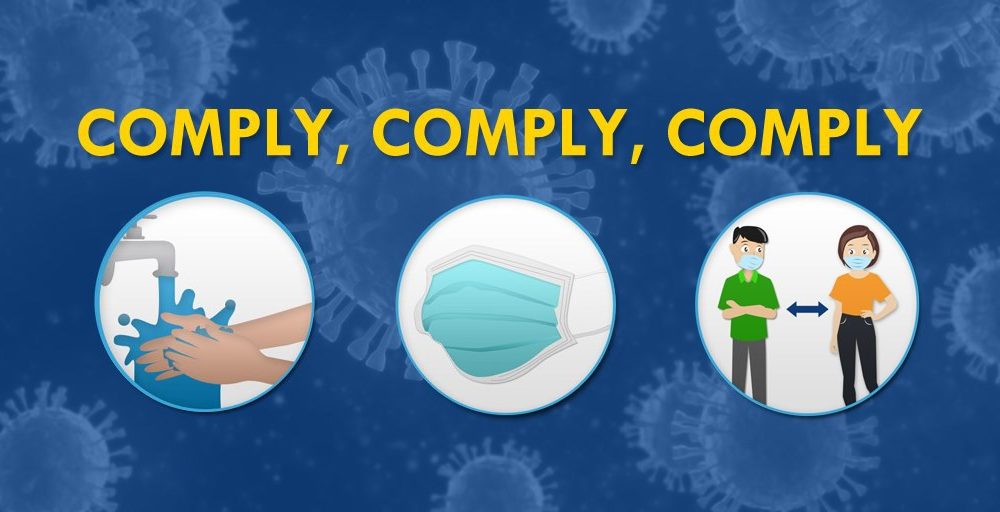
Donna May Lina with Agay Llanera
It’s been a little over a year since the Philippines reported its first COVID-19 case. Since then, our lives have drastically changed. To reduce the spread of the virus, we all had to learn the basic protocols: wash our hands, wear a mask, maintain physical distance. Guidelines were set out on international, national and barangay levels.
Just a few weeks ago, Lowy Institute, an Australian think-tank group, compared the effectiveness of the different countries’ pandemic responses. Criteria included the numbers of reported cases and deaths, tests conducted, and the rates of positive tests. On the list, the Philippines ranked 79th in terms of COVID-19 performance. Top countries that were able to control the virus were New Zealand (1st), Vietnam (2nd), Taiwan (3rd) and Singapore (13th).
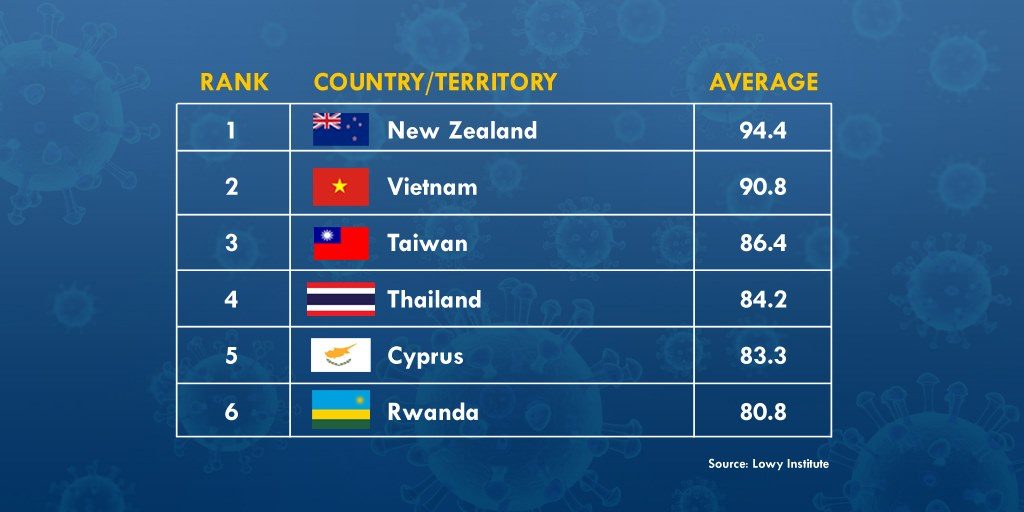
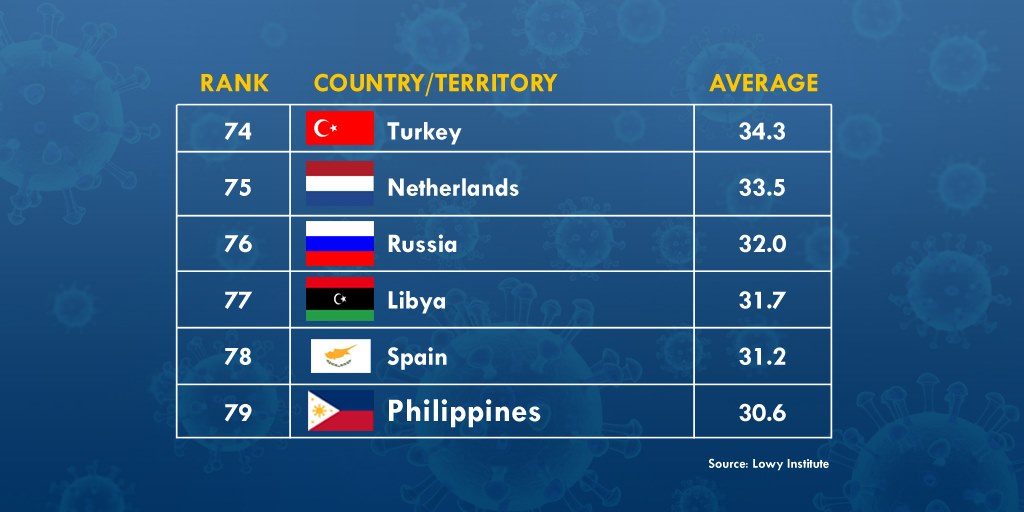 (Source: Lowy Institute)
(Source: Lowy Institute)
What did they do right?
For one, these countries have very clear guidelines. The New Zealand government has created separate COVID-19 safety websites for specific audiences—the business and service sector, workers, and even for its construction industry. Taiwan has only seven pandemic-related deaths because of its tight entry restrictions. As early as February last year, travelers with Taiwanese mobile numbers have been utilizing the QR code system for health declarations. Even home quarantine and isolation monitoring are done via mobile phones; if a person left quarantine, his or her phone will alert authorities who will immediately verify the person’s location.
With clear guidelines come clear penalties. To compare how the Philippines compares with other countries in meting out fines for the simple safety protocol of wearing face masks, Panahon TV came up with this chart:
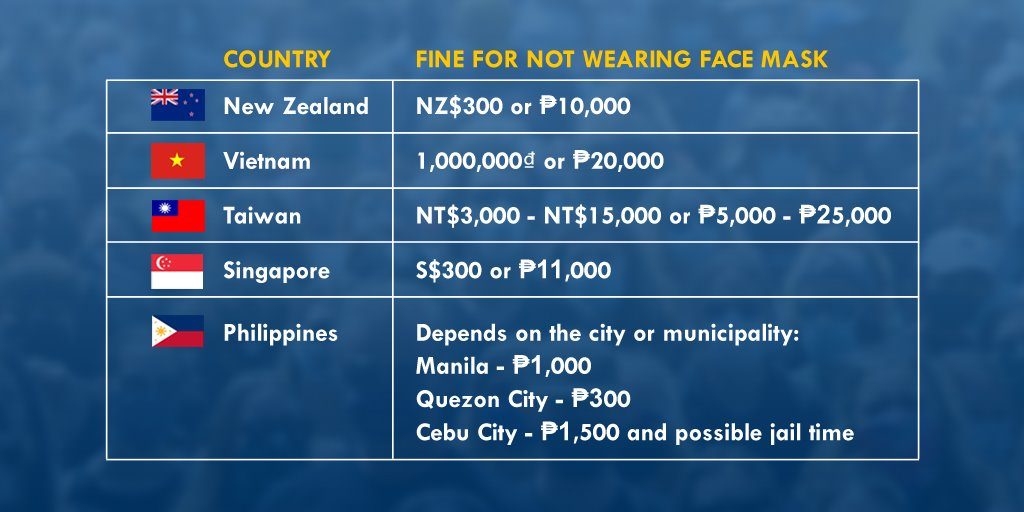
With local government units in our country having their own penalties, guidelines become confusing especially for travelers. A quick web search on sanctions for those failing to comply with COVID-19 safety protocols also revealed the following:
- New Zealand nips irresponsible behavior in the bud by imposing a fine of NZ$4,000 (₱14,000) for travelers who refuse to test for COVID-19. Violators can be held for 28 days.
- In Vietnam, those who escape quarantine sites, avoid quarantine measures, and fail to complete health declarations face criminal punishment.
- When an OFW left his room at a quarantine hotel in Taiwan for eight seconds, he was fined NT$100,000 (₱172,000).
- Those who fail to comply with Stay-Home Notice requirements in Singapore may be penalized up to S$10,000 (₱360,000) and/or imprisonment of up to six months.
- The farthest the Philippine government has gotten in this area is the mere suggestion of imposing community service and fines for quarantine violators. As of writing, no clear penalties have been drafted.
Factors that Contribute to Pandemic Response
Politics and location play a big role in the different pandemic responses across the globe. Vietnam and Taiwan are known for their disciplined citizens because they have always been challenged by threats of war. Due to geographical reasons, New Zealand has learned to be self-contained. A strict compliance with laws has always been the key component of Singapore’s governance.
Culturally, these countries have a more collectivist culture. Social psychologists define collectivism as a value that emphasizes interconnectedness, prioritizing a society’s goal and needs over those of the individual.
Interestingly enough, countries known for their individualistic cultures seem to have weaker pandemic responses, as listed by the Lowy Institute’s report. These include Sweden (37th), the UK ( 66th), Netherlands (75th) and the U.S. (94th).
A Centers for Disease Control and Prevention commentary observes how COVID-19 measures seem to focus more on individual risks, which lead to gaps in response. In order to curtail the global spread of the virus, messaging should promote cultural inclusivity. But instead of pitting one culture type against the other, the commentary suggests embracing “multicentric logics – individual, collective, and everything in between.” Different cultures and attitudes are factors in seeing how countries will be able to implement, comply, and continue to maintain safety guidelines to this date.
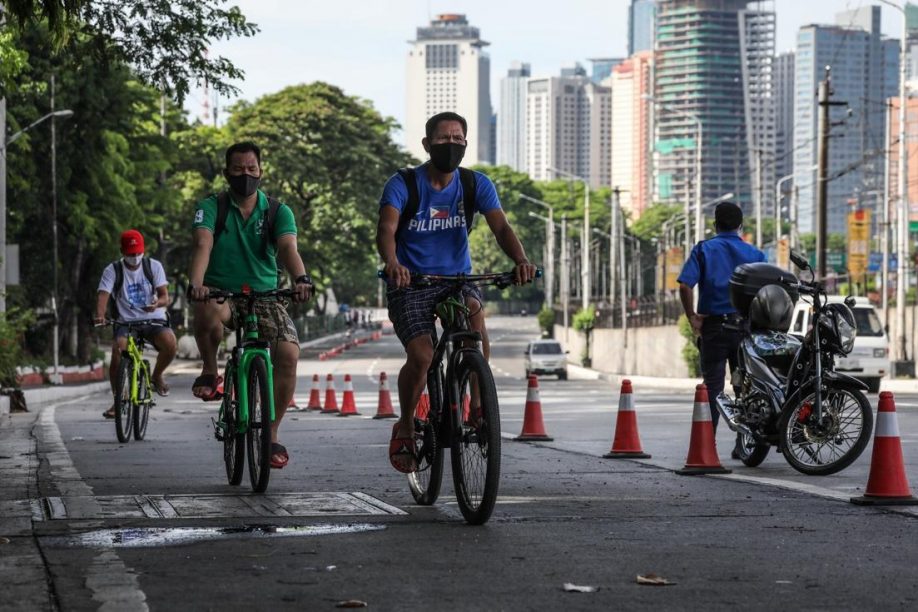 (photo by Jire Carreon)
(photo by Jire Carreon)
How will the pandemic end?
In an attempt to answer this question, the New York Times discussed how the 1918 Spanish flu virus, which killed as many as 100 million people worldwide, has simply lost steam, evolving into a still potentially fatal seasonal flu.
With the vaccine race “won” in round one by pharmaceutical companies like Moderna (U.S.) and AstraZeneca (UK), more than 108 million vaccine doses have been administered in 67 countries.
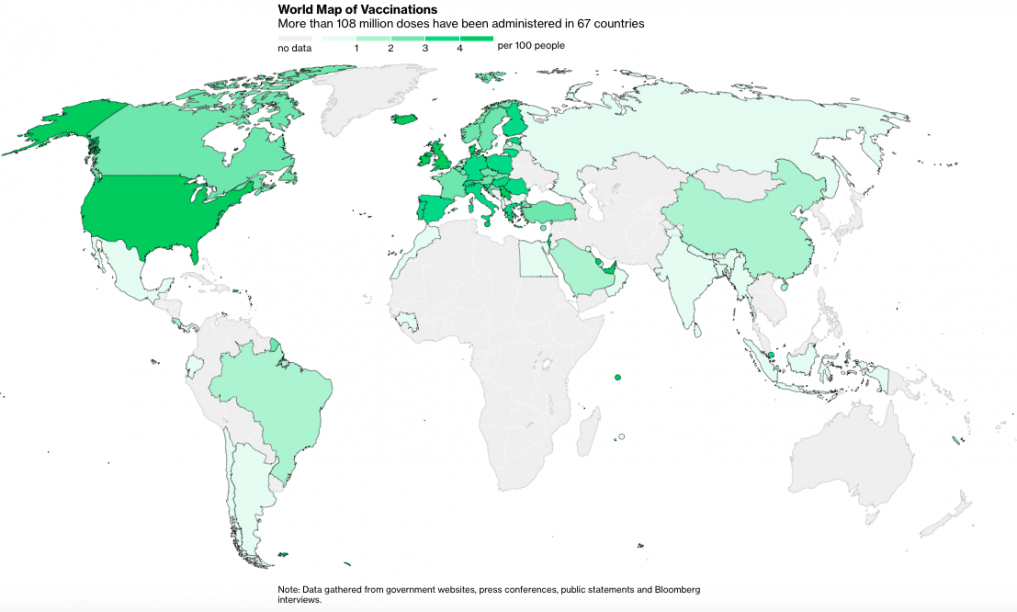 (Source: Bloomberg)
(Source: Bloomberg)
The vaccines were developed through collaborating scientists, were tested among selfless volunteers, and rolled out to countries’ frontliners and vulnerables depending on government strategy. Through modern technology and cooperation, vaccination has been conducted through Emergency Use Authorization, allowing the release of unregistered drugs and vaccines during a public health emergency. No other vaccine has been rolled out this fast.
But we will still need to work together and faster. The virus is mutating, and has evolved into variants from the UK, South Africa and Brazil, which are being closely monitored by health experts. Though vaccination seems to be the best solution in ending the pandemic, it doesn’t mean that the virus will magically disappear.
The Philippines is reported to receive the vaccines by the second quarter of this year. While we all wait for the vaccine rollout in our country, the best thing for us to do is to comply to safety standards.
The Philippine government has basic taglines for the people’s easy recall. Repetition has always been an effective communication tactic. There’s the Department of Public Work and Highway’s Build, Build, Build; and the Department of Agriculture’s Plant, Plant, Plant.
We should all then Comply, Comply, Comply to washing our hands. Comply, Comply, Comply to wearing face masks. Comply, Comply, Comply to maintaining physical distance. Comply, Comply, Comply to answering contact trace forms.
This may be easier said three times than done, but if we want our country to fare better, we must continue fighting the good fight despite quarantine and protocol fatigue. In this global crisis, there is no room for complacency, only repetitive compliance. Whether you’re privileged, careless, or downright indifferent, one thing is clear: the virus does not care.

